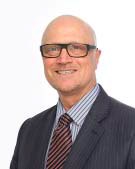Kevin McNally, Managing Director of Torquay International School tells Melanie Butler why Torquay is the ideal location for young learners
I never intended to get involved in young learners. My interest had always been in the high-end adult market, but after my first summer in Torquay, I realised that this was the ideal destination for children.
I had been shocked to see kids as young as 14 hanging round amusement arcades at 10:30 at night, completely unsupervised. Their bags and T-shirts clearly indicated that they were on a study programme run by one of the unaccredited providers who move into places like Torquay each summer and set up short-term centres.
I work on the basis that everything I do for students should be good enough for a member of my family. I wouldn’t want a young member of my family to be hanging around the streets in an unfamiliar town at 10:30 at night!
I could do this, I thought, and I could do it better. We already had an excellent infrastructure at Torquay International School, and our base of homestay providers was easily adaptable for younger students.
All the statistics show demand is moving to young learner courses. So, it made business sense to start developing these programmes, while being very careful not to allow this new venture to negatively affect our core adult business.
Some schools make the mistake of thinking young learner courses are more or less the same product as adult courses. I believe they need a very different perspective.
Safeguarding and welfare must come first. All the support staff who work with our young learners take the level three safeguarding course. We have a very high staff-to-student ratio and students are constantly supervised. Unusually, no student under 15 is allowed to walk alone to or from either school or activities.
In Devon, we are lucky in that our local council takes safeguarding and welfare extremely seriously. We have an excellent relationship with a local Safeguarding Liaison Officer, she is on hand for anything and everything. This gives me peace of mind, I feel that we have a constant third-party oversight.
Pedagogically, teaching young learners is only casually related to teaching adults. An adult knows that they are investing time and money to be with us. Young learners have no such perceptions. They have to be kept engaged at all times, and this requires enthusiastic and dynamic teaching.
There is a danger of assuming all young learners are ‘more or less the same’. I am very lucky in that my academic staff go to great lengths to view every young learner as an individual. They meet frequently with each of the young learners to see what we can do to help them each achieve their full potential, and we have classroom assistants on hand to help with any pastoral welfare issues.
Taking on young learners has led to sleepless nights worrying that every child is safe and secure. But our systems and procedures do work, and as we go into our third year I feel more relaxed.
The biggest reward has been seeing how much progress the young learners can make in two weeks. Walking into a class of 11-yearolds and seeing Italians, Turks and Algerians engaging with each other erases any cynicism. I like to think having these kids at Torquay International School means. in our own tiny way, we are helping our world have a better future.





